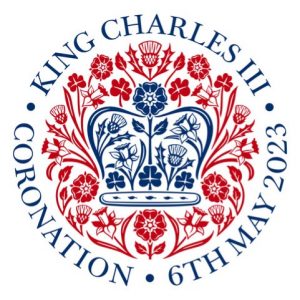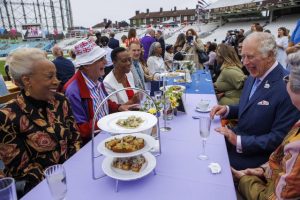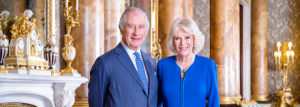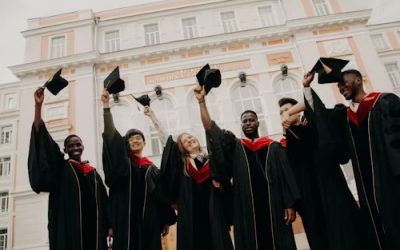On 6 May 2023, Great Britain, and the countries of the British Commonwealth, will celebrate the coronation of King Charles III. Following the death of HM Queen Elizabeth in September 2022, her eldest son, Charles, not only succeeded her as the British monarch but as the monarch of 14 other Commonwealth states, making him the king and head of state of around 150 million people. And so, this coronation, the first in the UK for over seventy years, is a significant event for all concerned, as it symbolises the continuity of the monarchy and reinforces the ties between the monarch and the member nations of the Commonwealth.

The Traditions of UK Coronations
Coronations in the UK, though not a common event, can be traced back more than 1,000 years. As you can imagine, the ceremony is steeped in age-old traditions reflecting ceremonial and religious elements. Dressed in ceremonial robes, King Charles III will be anointed with holy oil, receive the orb, coronation ring and sceptre and be crowned with the St Edward Crown, a crown made for King Charles II in 1661. Events will replicate Queen Elizabeth’s coronation in 1953, but today Britain and the Commonwealth countries are very different places, and King Charles is taking this rare opportunity to present a more modern approach to a multicultural and diverse population.
Changes in UK Society over the last 70 years
In the seventy years since the last coronation, Britain and the rest of the world have witnessed significant changes that impact today’s society. Changes in technology, the internet, smartphones, and the increase in “public living” via social media have widened everyone’s communication reach. The impact of never-ending wars, civil unrest, economic recessions, climate change devastation on natural environments and the long-awaited call for freedom from people of diversity, be that of religion, sexual orientation, sexual preference, gender, or ability, has seen a global increase of migrants and refugees, many of whom have made the UK their new home. As a result, like many other nations, Britain is undergoing a period of cultural evolution. This evolution, while resisted by some, is essential for the continued growth and development of society and fosters a culture of accepting and adapting to changing circumstances, ideas, traditions, and innovations.
An Inclusive Coronation Fit for the 21 Century
As such, it is appropriate that the new king recognises and embraces the changes in the attitudes and beliefs of the many societies under his realm. The king has put diversity at the heart of the coronation, with a vision that both the ceremony in Westminster Abbey and for players and narratives around the three-day event reflect a more modern approach whilst respecting long-standing traditions and pageantry. One of the more significant changes is the inclusion of different faith leaders in the service on Saturday. King Charles is known for his commitment to promoting multi-faith tolerance. Since becoming king, he has interacted publicly with bishops, priests, imams, and rabbis to show his connection to people of all beliefs. Indeed, one of his first engagements following the death of Queen Elizabeth was the hosting of all faith leaders at a reception in Buckingham Palace, where he claimed that it was “a personal duty to protect the diversity of our country” and promised to “protect the space for faith itself” while respecting and upholding the many “religions, cultures, traditions and beliefs to which our hearts and minds direct us”.

Ensuring a sense of connection to people of all ethnic backgrounds living in the UK, the king appointed several prominent representatives from different cultural backgrounds to participate in the profoundly Christian service at Westminster Abbey. Baroness Floella Benjamin, a British-Trinidadian, will carry the Sceptre with the Dove to the altar. Britain’s most decorated nurse, Dame Elizabeth Anionwu, will carry the King’s Orb and Baroness Amos, the first black woman to serve as a Cabinet minister, will take part in the recognition of His Majesty, alongside Lord Kamall, a Muslim Conservative peer, Lord Patel, a Hindu, Lord Singh of Wimbledon, a Sikh, and Baroness Mellon, a Labour peer and former chief executive of the Board of Deputies of British Jews. The impact of these decisions is perhaps best summed up by Baroness Benjamin, who said,
“I feel honoured and privileged to be part of the historic coronation ceremony. To be selected to carry the Sovereign’s Sceptre With Dove, which represents spirituality, equity and mercy, is for me very symbolic as it’s everything I stand for and sends out a clear message that diversity and inclusion is being embraced.”
And while this might be a monarchy of a more modern and forward-thinking approach, respect for recognition of all peoples of the realm and ensuring a sense of unity and pride for the member nations of the Commonwealth, the coronation ceremony will include a procession of representatives of the 14 realms. This inclusion allows Commonwealth nations to showcase their rich and diverse cultures to the world.
Despite controversy continuing over the invitation list, the king has forged ahead in recognising “unsung heroes” of British society by inviting nearly 4,000 NHS staff and Armed Forces veterans to watch the event in a grandstand beside Buckingham Palace.
With a weekend of celebrations, including a Coronation Concert in Windsor Castle featuring “global music icons and contemporary stars”, an inclusive king’s influence is evidenced through the creation of the Coronation Choir. This choir comprises members of the nation’s keenest community choirs and amateur singers from across the UK, such as refugee choirs, NHS choirs, LGBTQ+ singing groups and deaf signing choirs.
And again, remembering his responsibility to his Commonwealth nations, the Coronation Choir will also appear alongside The Virtual Choir, composed of singers from across the Commonwealth, for an exceptional performance.
King Charles has long advocated for what were at times considered controversial beliefs: protection of the environment, inclusion of all faiths and the acceptance of a diverse nation. Today, these elements are essential for human societies and cultures’ continued growth and development. It is anticipated that the coronation and reign of King Charles III will retain the necessary pomp and pageantry but will evolve to meet the changing needs and wants of Britain’s multicultural and diverse society.
TogetherintheUK congratulate King Charles III and Queen Camilla on their joint coronation and wishes them a long and successful reign, offering their continued support and loyalty.

The Coronation Big Lunch
Neighbours and communities across the United Kingdom are invited to share food and fun at Coronation Big Lunches on Sunday, 7 May 2023, in a nationwide celebration and friendship. From a cup of tea with a neighbour to a street party, a Coronation Big Lunch brings the festivities to your neighbourhood and is a great way to get to know your community better.
The Coronation Big Lunch will be overseen and organised by the Big Lunch team at the Eden Project. The Big Lunch is an idea from the Eden Project, made possible by The National Lottery, that brings millions of people together annually to boost community spirit, reduce loneliness and support charities and good causes. Her Majesty, The Queen Consort, has been Patron of the Big Lunch since 2013.
The Big Help Out
The Big Help Out will be held on Monday, 8 May 2023, organised by The Together Coalition and a wide range of partners such as The Scouts, the Royal Voluntary Service and faith groups from across the United Kingdom. The Big Help Out will highlight the positive impact volunteering has on communities across the nation.
In tribute to His Majesty The King’s public service, The Big Help Out will encourage people to try volunteering for themselves and join the work being undertaken to support their local areas. The Big Help Out aims to use volunteering to bring communities together and create a lasting volunteering legacy from the Coronation Weekend.
For information on all events for the Coronation Weekend, click here.






